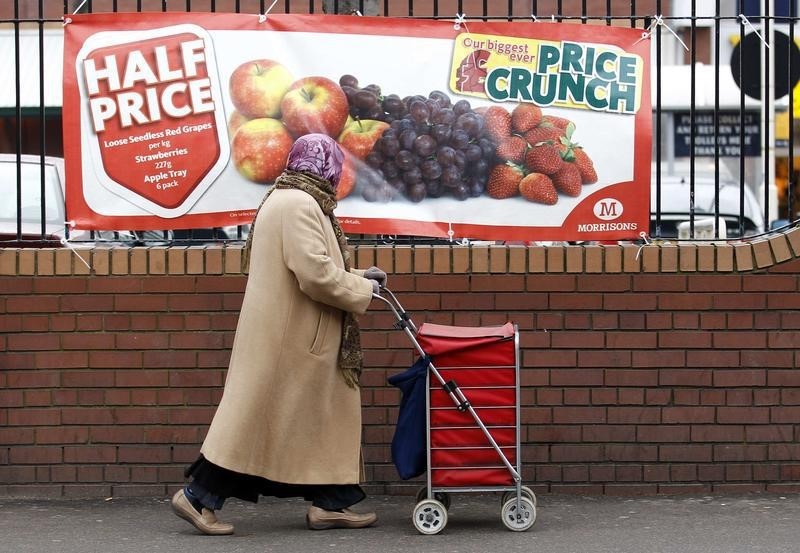LONDON (Reuters) - Britain's trade in goods deficit narrowed to its lowest level in nearly two years in May, pushed down by a fall in imports including ships, but April's deficit was revised higher.
The Office for National Statistics also said construction output suffered its biggest monthly fall in more than a year in May, underscoring why the government is preparing to announce measures to boost home-building.
The ONS said on Friday the goods trade deficit shrank to 8.000 billion pounds, much smaller than a median forecast for a shortfall of 9.700 billion pounds in a Reuters poll of economists and its lowest level since June 2013.
But April's deficit was revised higher to show a gap of 9.837 billion pounds compared with an original estimate of 8.561 billion pounds.
An ONS official said the revision was caused by imports that were higher than previously thought. It was the second month in a row that the import figure for a previous month was revised higher because of changes in figures from Britain's customs department, she said.
Goods exports rose 0.1 percent in volume terms from April while imports plunged 5.5 percent, pushed down by lower imports of ships amd material manufactures.
Including Britain's surplus in trade in services, the overall trade deficit shrank to 393 million pounds in May, also the lowest level since June 2013.
Britain has largely relied on domestic demand to propel its economic recovery since the middle of 2013, frustrating the hopes of Prime Minister David Cameron to make exports a bigger driver of the country's economy.
Exporters have struggled in the face of weak demand in the euro zone -- the main market for British goods and services -- and a rally in sterling.
British finance minister George Osborne is due to announce later on Friday a series of measures aimed at boosting the country's weak productivity record which could help exporters.
Britain's trade data is volatile on a monthly basis, however, and the ONS said that in the three months to May exports were up 2.6 percent while imports fell 0.2 percent.
The ONS also said on Friday that construction output fell by 1.3 percent in May from April, mainly due to lower housebuilding. It was the biggest fall since February of last year.
Compared with the same month last year, construction output was up 1.3 percent, its slowest pace of growth since November 2013.

Osborne will make measures to ease planning obstacles for house-building the centrepiece of his plan to boost productivity.